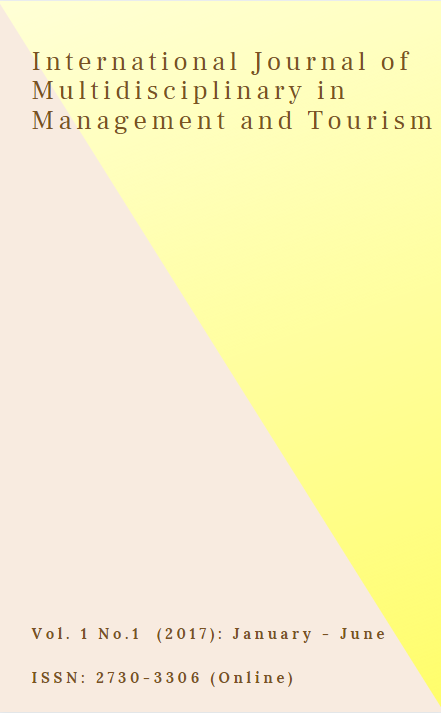Experiencing That Life Is Divine through the Science of Creative Intelligence: A Qualitative Analysis of Results of Research in Consciousness
Main Article Content
Abstract
Experiences of the divinity of life, being lived as a daily reality of particular individuals, have been recorded throughout the ages. This paper is a qualitative phenomenological case study of self-research, presenting the results of my research in consciousness, on the divinity of life as a daily reality, correlated with the principles of Maharishi Science of Creative IntelligenceSM.
Maharishi Science of Creative Intelligenceis the science of consciousness that provides both theoretical understanding and practical,systematic technologies for anyone to research anddevelop higher states of consciousness.The technologies are the Transcendental Meditationâ technique and the TM-Sidhiâ program. The principles of Maharishi Science of Creative Intelligence describe signposts ofgrowth towardexperiencing the divinity of life as a daily reality, described as the highest state of consciousness, Unity Consciousness.
Qualitative analysis of the research results is made in terms of the principles of Maharishi Science of Creative Intelligence relevant to growth of Unity Consciousness. The results of this research in consciousness document that the divinity of life is experienced in the field of Transcendental Consciousness and that repeated experience of Transcendental Consciousness leads to the divinity of life being lived as a daily reality, suggesting growth toward Unity Consciousness.
Article Details
References
Qualitative Research,1037-1063. California, USA: Sage Publishing.
Gelderloos, P., Goddard, P.H., Ahlstrom, H.H. B., Jacoby, R. (1987). Cognitive orientation toward positive values in advanced participants of the TM and TM-Sidhi program. Perceptual and Motor Skills, 64, 1003-1012.
Kahlke, R. M. (2014). Generic Qualitative Approaches: Pitfalls and Benefits of Methodological Mixology. International Journal of Qualitative Methods (13) 37-52.
Katz, V. (2011). Conversations with Maharishi, Maharishi Mahesh Yogi speaks about the full development of human consciousness, volume 1. Fairfield, Iowa. USA: Maharishi University of Management Press.
Kohlbacher, F., (January 2006). The use of qualitative content analysis in case study research. Forum Qualitative Social Research (7), 1, Art. 21.
Maharishi Mahesh Yogi. (1981). Maharishi Mahesh Yogi on the Bhagavad-Gita: A new translation and commentary, chapters 1-6. England: Penguin Books.
Maharishi Mahesh Yogi. (1992). Maharishi’s Philosophy of Vedic University in Ayodhya.
The Netherlands: Maharishi Vedic University Press.
Maharishi Mahesh Yogi. (1994). Maharishi Vedic University: Introduction. The Netherlands: Maharishi Vedic University Press.
Maharishi Mahesh Yogi. (1995). Maharishi university of management. The Netherlands: Maharishi Vedic University Press.
Maharishi Mahesh Yogi. (1997). Celebrating perfection in education: Dawn of Total Knowledge (2nded.). India: Age of Enlightenment Publications.
Maharishi Mahesh Yogi. (2001). The science of Being and art of living. New York: Penguin Putnam.
The Mother Divine Program. (2015). Retrieved on May 8, 2015, fromhttp://motherdivine.org/
Muller, F. M. (1962). The Upanisads part 2. New York: Dover.
Orme-Johnson, D. W. (1995). Summary of Scientific Research on Maharishi’s Transcendental Meditation and TM-Sidhi Program. Fairfield, Iowa, USA: Maharishi International University Press. Retrieved on May 4, 2016, from https://www.scribd.com/doc/78944097/Orme-Johnson
Schonbacher, V. (2000). Celebrating the enlivenment of the most fundamental principles of modern science in the light of Maharishi’s Vedic Science. [Videotaped lecture, Perfect Man 1, Lesson 3, broadcast April 11 and 27, 2000].

